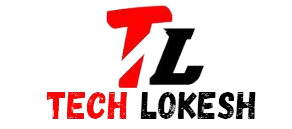Embracing Flexibility with Remote Work Technologies
In the evolving landscape of work, the ability to work remotely has become a significant draw for new employees, especially within tech companies. The advancement of remote work technologies has not only made it possible but also highly efficient for teams to collaborate from different parts of the world. These innovations appeal to modern employees who value flexibility and work-life balance, allowing them to integrate their professional and personal lives seamlessly.
Companies that invest in robust remote work tools—such as advanced video conferencing platforms, real-time collaborative software, and secure cloud storage—create an environment where employees can thrive regardless of their location. This level of flexibility also speaks to a company’s adaptability and forward-thinking approach, traits that are particularly attractive to new talent.
Moreover, these tools often come with features that enhance productivity and foster a sense of community among remote teams. For instance, virtual reality (VR) meeting spaces are emerging as a way to simulate the in-person experience, offering a more immersive and engaging way to collaborate. By embracing these technologies, tech companies can attract top talent who are looking for the freedom to work in a way that suits their lifestyle without compromising on efficiency or connectivity.
Advancing Employee Development with AI-Driven Learning
Another area where tech companies are making significant strides is in employee development through AI-driven learning platforms. These platforms offer personalized learning paths tailored to individual employees’ skills, goals, and learning styles. For new employees, this means a more engaging and relevant onboarding process, as well as continuous opportunities for professional growth.
AI-driven learning platforms can identify knowledge gaps and recommend specific courses or training modules to address them. This not only helps new employees get up to speed quickly but also shows a company’s commitment to their long-term career development. By offering such personalized development opportunities, tech companies can differentiate themselves as employers who invest in their people, which is a powerful attraction for top talent.
These platforms also allow for greater flexibility in how and when employees learn, whether it’s through bite-sized lessons during a lunch break or more in-depth courses over the weekend. The convenience and adaptability of AI-driven learning make it easier for employees to integrate professional development into their daily routines, making them more likely to engage with the resources provided.
Outsourcing Marketing for Enhanced Brand Presence
As tech companies innovate internally, they also need to ensure that their external image reflects their forward-thinking culture. This is where outsourcing marketing to agencies like 97th Floor comes into play. By collaborating with specialized marketing firms, tech companies can focus on their core innovations while ensuring that their brand presence is strong and consistent.
Outsourcing allows companies to access the latest marketing technologies and strategies without the need for extensive internal resources. This is particularly appealing to new employees, who often look for companies that are not only innovative in their products and services but also in how they present themselves to the world. By partnering with a marketing agency, tech companies can ensure that their brand resonates with both potential customers and top talent, reinforcing their position as leaders in the industry.
Investing in Cutting-Edge Workplace Environments
The physical workspace is also a critical factor in attracting new employees, and tech companies are leading the way in creating environments that inspire creativity and productivity. Advancements in workplace technology, such as smart office systems, ergonomic furniture, and wellness-focused design, appeal to employees who value a holistic approach to their work environment.
Smart office systems that automatically adjust lighting, temperature, and even desk height to an employee’s preferences create a more comfortable and personalized work experience. Ergonomic furniture that supports health and well-being is another key feature, showing that a company cares about its employees’ physical health as much as their professional success.
In a rapidly evolving industry, tech companies must continuously innovate not only in their products but also in how they attract and retain top talent. By embracing advancements in remote work technologies, AI-driven learning, collaborative tools, marketing outsourcing, and workplace environments, these companies can create an appealing ecosystem for new employees. The key is to offer a blend of flexibility, growth opportunities, and a culture of innovation that resonates with today’s workforce, ensuring that they feel valued and inspired from day one.

